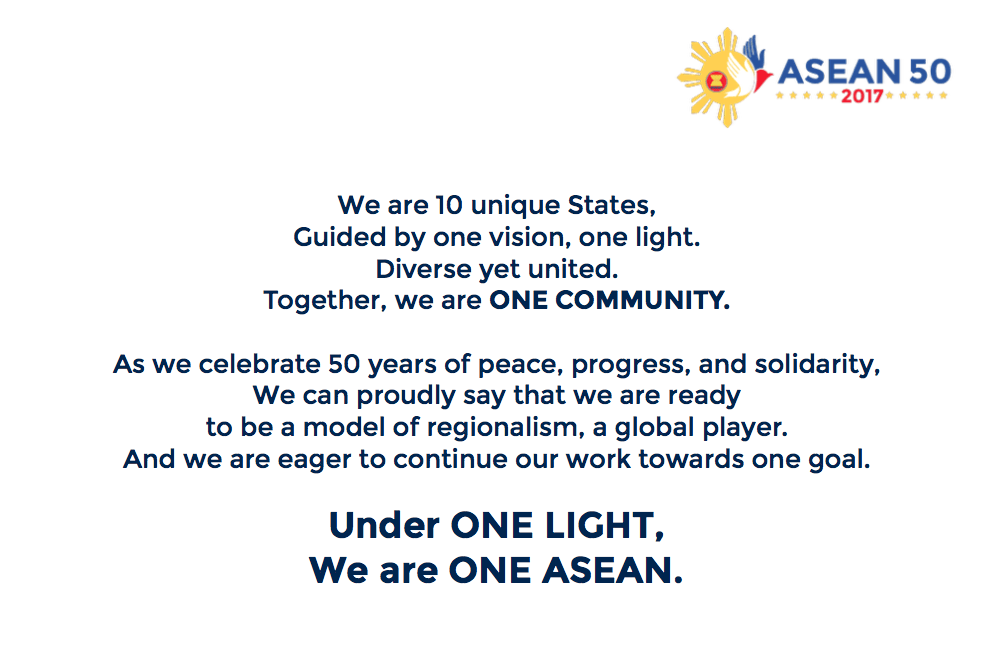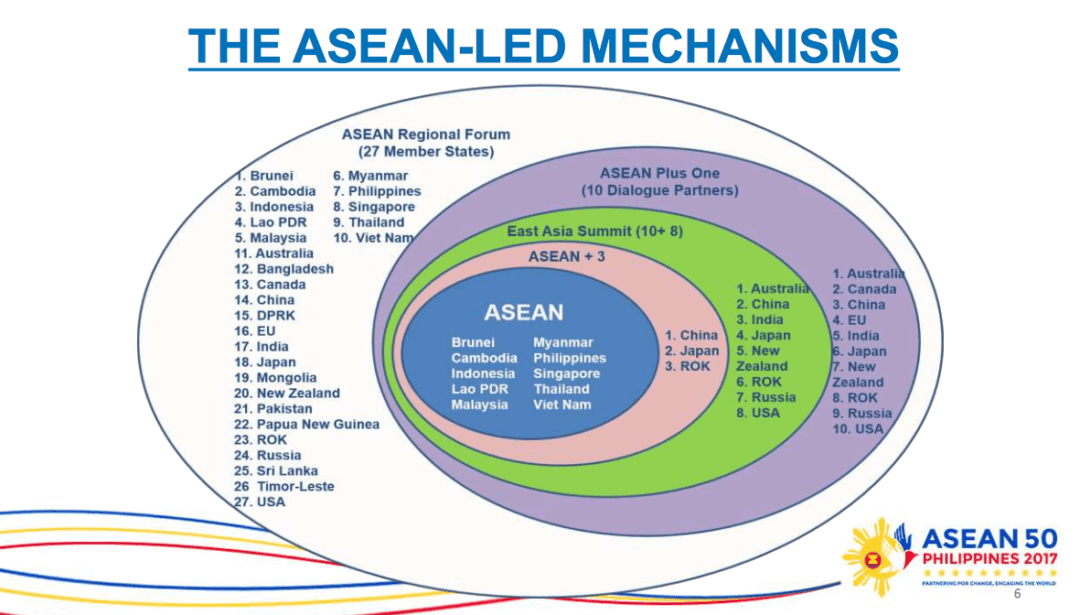ASEAN’s 50th anniversary was more than a milestone—it was a reminder of how regional unity, diplomacy, and cooperation have shaped Southeast Asia’s path toward peace and development. As we look back, the celebration also invites us to ask: what lessons remain relevant for leaders, citizens, and organizations today?
Pre-requisite read:
Understanding PH Chairmanship and the ASEAN Community
The Story Behind ASEAN’s 50th Anniversary
On August 8, 2017, Southeast Asia celebrated the 50th anniversary of the Association of Southeast Asian Nations (ASEAN). With the theme “Under One Light, We Are One ASEAN”, the occasion honored the region’s progress—from its humble beginnings in 1967 to becoming a global model of regional cooperation.
How ASEAN Started
Five decades earlier, the Foreign Ministers of Indonesia, Malaysia, the Philippines, Singapore, and Thailand signed the ASEAN Declaration in Bangkok. Their vision: strengthen regional stability, amplify cooperation, and promote peace at a time of global tension.
A Tribute to the Founding Fathers
During the 2017 celebration at the Philippine International Convention Center (PICC), ASEAN paid homage to its founding leaders—Tun Abdul Razak, Adam Malik, Narciso Ramos, S. Rajaratnam, and Thanat Khoman. Their legacy continues to shape ASEAN’s growth trajectory.

ASEAN at 50: What Has Changed?

A Region Once Divided, Now Moving Forward Together
ASEAN’s first 50 years can be summarized in five major achievements:
- Expansion to 10 member states, representing the whole Southeast Asian region.
- Regular security dialogues involving Asia-Pacific nations and UN Security Council representatives.
- Adoption of a regional disaster management framework to improve coordinated response.
- Peace preservation that kept conflict at bay despite geopolitical pressures.
- Strategic planning towards “ASEAN Community 2025”, a long-term development blueprint.
Why ASEAN 50 Still Matters Today
While the celebration happened years ago, its message is timeless: unity makes Southeast Asia stronger. In an era marked by disinformation, political shifts, and economic volatility, ASEAN’s cooperative model continues to be an anchor for stability.
How Filipinos Can Continue the Spirit of ASEAN
- Promote regional awareness and cultural appreciation in schools, workplaces, and communities.
- Support local and cross-border initiatives that strengthen people-to-people ties.
- Be responsible when sharing regional news, especially on security, diplomacy, and economic issues.
💡 The ASK Takeaway
ASEAN’s story of regional cooperation aligns neatly with our ASK Framework — Align • Strengthen • Kickstart:
- Align national and organizational goals with regional peace, collaboration, and shared prosperity.
- Strengthen capacity through diplomacy, people-to-people engagement, and responsible leadership across borders.
- Kickstart initiatives that promote unity in diversity—whether in teams, communities, or ASEAN-wide projects.
Discover the full framework →
ASK Framework Cornerstone Page
Frequently Asked Questions
Why was ASEAN formed?
ASEAN was created in 1967 to promote regional stability, peace, and economic cooperation during a period of geopolitical tension.
Why is the 50th anniversary important?
The anniversary marks five decades of progress and shows how far Southeast Asia has come from conflict-driven beginnings to a respected regional bloc.
How can citizens support ASEAN initiatives today?
By promoting cultural understanding, verifying information before sharing, and participating in regional learning or exchange programs.





